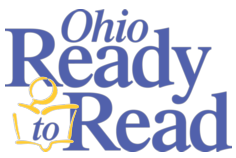English Language Learners (ELLs) may have a wide variety of needs and special circumstances that libraries can address positively.
For children, learning two (or more) languages increases the complexity of language and literacy development. Also, social factors and family circumstances may impact ELL children’s literacy development. These include the parents’/caregivers’ literacy level in English and in the home language, knowledge of and attitudes toward library and school, legal status, sense of isolation or inclusion, support network, access to resources, income level, and more.
An evaluation of ECRR, funded by an IMLS grant, found promising results about the impact that implementing ECRR has had on the ongoing literacy behaviors of ELL families. For more about this research, PLA and ALSC have posted two articles, “Libraries Emerging As Leaders in Parent Engagement” and “Libraries at the Ready,” by researchers Donna Celano and Susan B. Neuman.
Information for librarians serving ELL families
Reading Rockets: English Language Learners
Articles, videos, tip sheets, and research reports for families and professionals.
Spanish Resources
Information on early literacy for Spanish-speaking families from Saroj Ghoting. This page is available in English and Spanish.
8 Strategies for Preschool ELLs' Language and Literacy Development
From Colorín Colorado, this article for preschool classroom teachers can also inform library storytimes and other preschool programs.
Resources to share with ELL families
Colorín Colorado: For Families
A project of WETA Public Media, Colorín Colorado provides bilingual, research-based information, activities, and advice for educators and families of ELLs.
Helping Your Child Learn in Two Languages
This tip sheet from the Illinois Early Learning Project encourages families to make their home language the foundation for literacy.
International Children’s Digital Library
Founded in 2002, the ICDL makes freely available hundreds of children's books from around the world. The collection helps families have access to the books of their language and culture, as well as the majority culture, regardless of where they live. The books in the collection help children to understand the world around them and the global society in which they live.
